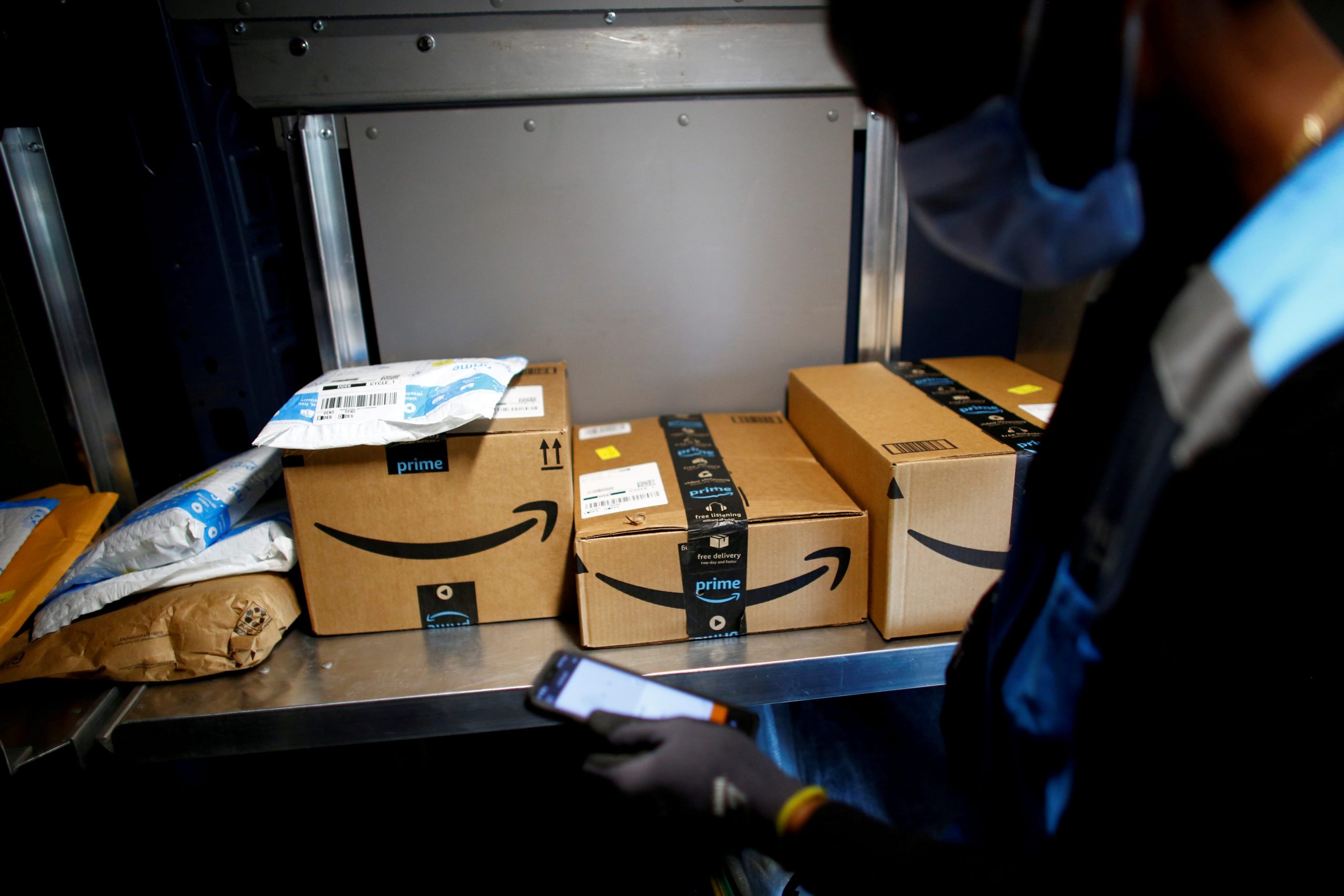
Reuters
- Amazon sellers are still hiking up the prices of essential products such as hand soap six months into the pandemic, new research has found.
- A pack of Clorox disinfectant wipes cost nearly eight times more on Amazon in August than than it did at Target and Home Depot, the US Public Interest Research Group found.
- Amazon has already suspended over 10,000 sellers for price gouging, it said.
- Legislation on the practice differs significantly between states. California and New York prohibit 10% price increases during national emergencies, but Texas doesn’t have a hard limit, for example.
- Visit Business Insider’s homepage for more stories.
Six months into the pandemic, sellers on Amazon are still charging up to 14 times more than other retailers for staple products such as soap and hand sanitizer, new research has found.
The US Public Interest Research Group (PIRG) reviewed 10 food, health, and cleaning products, and found many cost significantly more on Amazon than at other US retailers. For example, Clorox was selling a canister of 75 disinfectant wipes on Amazon for $37.95 on August 11 — nearly eight times more than what Target and Home Depot charged for it. This product is now unavailable on Amazon.
Amazon told Business Insider it has removed 10,000 accounts for inflating their prices during the pandemic, and said that “bad actors” were trying to “take advantage of this global health crisis.”
The process is known as “price gouging”: sellers hiking up prices because of increased demand. Amazon sellers aren’t new to this practice — in February the US PIRG tracked surgical masks and hand sanitizers on the platform, and reported that prices of more than half of the products spiked by at least 50%, compared to the average price between December and February.
The new research suggests this is still happening.
A 12.5-ounce bottle of Mrs. Meyer's Hand Soap is currently on sale for $3.99 at Target and $3.88 at Walmart, but on Amazon one seller listed it for $20.89 in early August — more than five times the price.
In early September, an Amazon vendor sold an eight-ounce bottle of Germ-X Moisturizing Hand Sanitizer, which has been in high demand after being approved by the FDA, for $13.72, but it was available at Walmart and Target for less than $2.30. Reviews of the product on Amazon accuse the seller, Germ-X of ramping up the price during the pandemic.
The biggest price difference recorded by researchers was for Wet Ones antibacterial wipes, which claimed to be America's top hand wipe brand in 2019. A user on Amazon sold 40-pack canisters for $27.60 in early August — more than 11 times higher than Target, and nearly 14 times higher than Walmart, where the pack sold for $1.98.
Wet Ones issued a statement saying it "does not condone this [practice] in any way," and said it is working with Amazon directly to report price gouging.
Amazon: 'No place for price gouging'
In response to the research, Amazon said "there is no place for price gouging" on the platform.
"Our teams are monitoring our store 24/7 and have already removed over a million offers for attempted price gouging," it said in a statement to Business Insider.
"We are disappointed that bad actors are attempting to take advantage of this global health crisis and, in addition to removing these offers, have suspended more than 10,000 selling accounts. We have referred the most egregious offenders to federal and state law enforcement across the country to hold them accountable. We continue to actively monitor our store and remove offers that violate our policies."
In March, Amazon said it had removed 3,900 sellers for price gouging after vendors sold thermometers for hundreds of dollars when demand surged. But some sellers argued Amazon has become too aggressive and has suspended sellers not engaged in price gouging.
US PIRG said that "Amazon in particular needs to step up its efforts and do more to fulfill its promise, but Amazon is not the only site or store with this issue, so while we call on Amazon and other retailers and platforms to prevent these abuses, we are also calling for stronger government policy to protect consumers."
The US government appears increasingly keen to take action. In March, President Trump signed an executive order to prevent price gouging of crucial medical items amid the pandemic. That same month, US attorneys general in 32 states signed a letter to Amazon demanding that retailers introduce better anti-gouging measures.
Currently, 37 states have statutes aimed at preventing price gouging during an emergency, but the measures vary significantly between states. For example, California and New York prohibit 10% price increases during national emergencies, but in Kansas, up to 25% is allowed. Texas doesn't have a hard limit.
